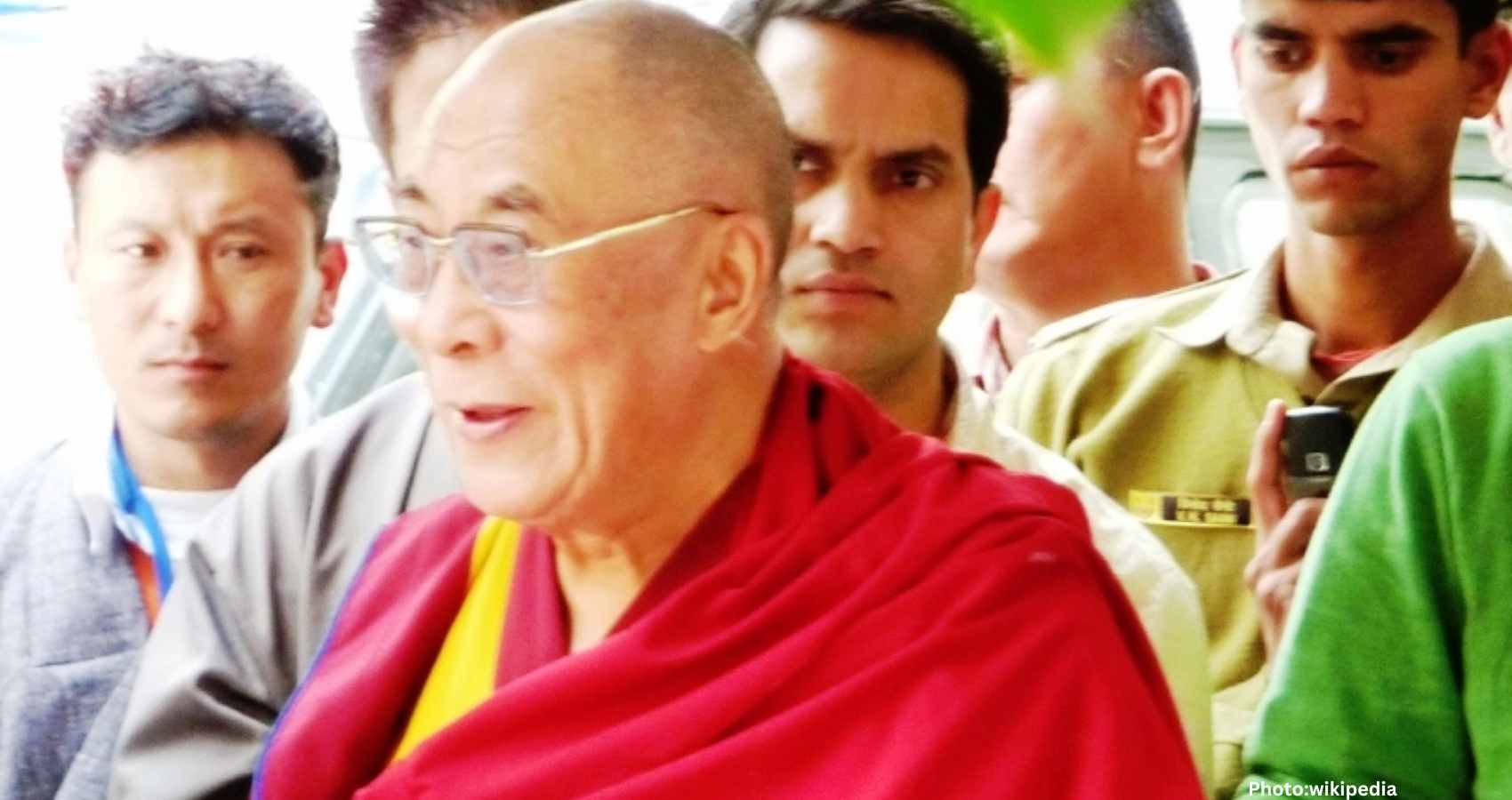The Dalai Lama, in his newly released book Voice for the Voiceless, has revealed that his successor will be born outside China, a statement that directly challenges Beijing’s claim over Tibet’s spiritual leadership. The book, launched on Tuesday, offers a historical perspective on his interactions with Chinese authorities and presents his vision for Tibet’s future beyond his lifetime.
“Since the purpose of a reincarnation is to carry on the work of the predecessor, the new Dalai Lama will be born in the free world so that the traditional mission of the Dalai Lama – that is, to be the voice for universal compassion, the spiritual leader of Tibetan Buddhism, and the symbol of Tibet embodying the aspirations of the Tibetan people – will continue,” the Dalai Lama wrote.
According to Reuters, this marks the first time the 89-year-old Tibetan spiritual leader has explicitly stated that the next Dalai Lama will emerge in the “free world” rather than in Chinese-controlled Tibet. In the past, he had suggested that he might not reincarnate at all or that he could return outside Tibet, possibly in India, where he has lived in exile since 1959.
China Rejects Dalai Lama’s Claims
Beijing, in response, has dismissed the Dalai Lama’s assertion, maintaining that it alone has the authority to determine his reincarnation.
As per AFP, Chinese foreign ministry spokesperson Mao Ning stated on Tuesday that the Dalai Lama “is a political exile who is engaged in anti-China separatist activities under the cloak of religion.”
She further emphasized that his reincarnation must align with Chinese regulations and traditions, asserting, “The reincarnations of living Buddhas, including the Dalai Lama, should abide by national laws and regulations… and be subject to the approval of the central government.”
China has consistently asserted that Tibet is an inalienable part of its territory, characterizing its takeover in 1950 as a “peaceful liberation.” Meanwhile, negotiations between Beijing and Tibetan representatives have been at a standstill since 2010.
In Voice for the Voiceless, the Dalai Lama reflects on his long-standing efforts to “save my homeland and people.” The book details his interactions with Chinese leaders, spanning from Chairman Mao Zedong to President Xi Jinping, and reiterates his appeal for dialogue.
“One thing is for sure: no totalitarian regime, whether headed by an individual or a party, can last forever, because they abuse the very people they claim to speak for,” he writes.
He relinquished his role as the political leader of Tibet’s government-in-exile in 2011, transferring authority to a democratically elected administration led by Penpa Tsering. Based in India, this administration does not push for complete independence but rather advocates for enhanced autonomy under the “Middle Way” approach.
However, Beijing has dismissed this India-based Tibetan administration as a “puppet government.” China has also demanded that the Dalai Lama acknowledge Tibet and Taiwan as inseparable parts of China before any discussions can take place—a condition that the Tibetan parliament-in-exile has refused, according to Reuters.
Dalai Lama’s Succession Plan and Tibet’s Future
Now at 89, the Dalai Lama acknowledges that his return to Tibet is “increasingly unlikely.” Nevertheless, he remains hopeful about the Tibetan cause, writing, “The right of the Tibetan people to be the custodians of their own homeland cannot be indefinitely denied, nor can their aspiration for freedom be crushed forever through oppression.”
The Tibetan leader also noted that Tibetans around the world have urged him to ensure the continuation of the Dalai Lama lineage. According to Tibetan Buddhist tradition, the soul of a senior monk is reincarnated in the body of a child after death, and the Dalai Lama himself was recognized as a reincarnation at the age of two.
Despite concerns about his health following knee surgery last year, he told Reuters in December that he could live to 110. Further details about his succession plans are expected to be released around his 90th birthday in July.
While Beijing insists that it will appoint the next Dalai Lama, his announcement that his reincarnation will be born outside China sets the stage for a long-standing battle over Tibet’s future, even after his passing.

